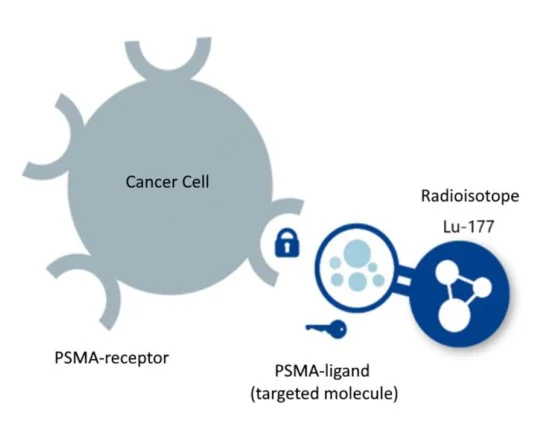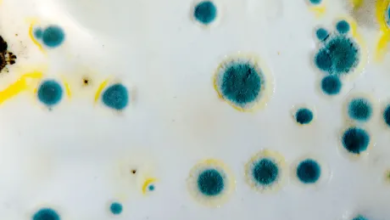
Introduction to Targated Therapy
Targeted therapy is a type of cancer treatment that uses drugs or other substances to identify and attack specific cancer cells by exploiting differences between cancer cells and normal cells. The medical oncologist in mumbai orders molecular profiling of the patient’s tumour biopsy to identify potential targets that can be used to guide treatment selection. Here are some key points about targeted therapy:
- Targets molecular differences – Targeted therapy targets molecular differences between cancer cells and normal cells that allow the cancer cells to grow and survive. These differences may be mutated proteins, overexpressed receptors, or other biomarkers.
- More selective – In contrast to traditional chemotherapy which affects all rapidly dividing cells, targeted therapy directly acts on molecular abnormalities in the cancer cells, leading to fewer side effects.
- Multiple approaches – There are several types of targeted therapies including monoclonal antibodies, small molecule inhibitors, immunotherapy, and angiogenesis inhibitors. Each has a different way of targeting cancer cells.
- Requires molecular testing – Molecular and genetic testing is needed to identify the specific molecular targets in a patient’s cancer cells so targeted drugs can be matched appropriately.
- Used in combination – Targeted therapy is often used in combination with chemotherapy, radiation, surgery, or other targeted drugs to improve outcomes.
- Drawbacks exist – Limitations include the development of resistance and the challenge of only working on specific molecular subtypes of cancer.

The key roles an oncologist plays in targated therapy for cancer patients:
- Molecular Testing – The oncologist orders molecular profiling of the patient’s tumour biopsy to identify potential targets that can be used to guide treatment selection. This may include sequencing tumor DNA to look for mutations, or testing for specific proteins.
- Treatment Selection – Based on the molecular test results, the oncologist selects an appropriate targeted therapy that is designed to block the identified target. They will consider FDA-approved therapies as well as clinical trials of newer experimental drugs.
- Managing Treatment – The oncologist prescribes the dosage and schedule of the targeted therapy and monitors the patient closely for side effects and response to treatment through regular exams and imaging. They may adjust or change therapies based on how the cancer responds.
- Addressing Resistance – If cancer stops responding to the targeted therapy, the oncologist may order repeat molecular testing to see if the tumour has changed and may select an alternative targeted therapy accordingly.
- Supportive Care – The oncologist provides supportive care to help patients manage the side effects of treatment and maintain quality of life. This may include medications, nutritional advice, emotional support, or referrals to other specialists.
- Clinical Trials – Oncologists help provide patients access to clinical trials of new targeted therapies so they can potentially benefit from experimental treatments. They help explain the risks and benefits of trials.
- Multidisciplinary Care – Oncologists work with other specialists like surgeons, radiologists, and palliative care physicians to optimize all aspects of care for the cancer patient before, during, and after targeted therapy.
At HCG Hospital Borivali mumbai, oncologist plays a critical role in harnessing the full potential of targeted cancer treatments for each individual patient. Their expertise helps translate complex molecular information into improved patient outcomes.
The costs associated with targeted therapy for cancer treatment:
- Drug costs – Targeted cancer therapy drugs are often very expensive, with monthly costs typically ranging from $5,000 to $20,000 depending on the specific medication. Some immunotherapy drugs have even higher monthly costs.
- Genetic testing – To determine if targeted therapy is appropriate, patients need genetic tests like genomic sequencing or biomarker tests to identify mutations in the tumour. These tests can cost several thousand dollars. Repeat testing may be needed during treatment.
- Administration and monitoring – Getting infused with targeted therapy medications at a clinic or hospital and undergoing frequent monitoring scans and lab work during treatment contributes to higher healthcare costs compared to traditional chemotherapy.
- Supportive care medications – Medications to manage side effects of targeted therapies, like skin rashes or diarrhoea, also add to costs.
- Cost of research and development – The complex process of developing and testing new targeted cancer drugs is expensive. Drug companies incur high costs in bringing targeted therapies to market.
- Lack of generics – Because many targeted cancer therapies are newer, no low-cost generic versions are available yet. Patent protections keep prices high.
- Dosing and duration – Some patients may receive targeted therapy drugs indefinitely if they continue to work. The longer duration adds to the overall cost of treatment.
- Insurance coverage – Out-of-pocket costs for patients depend on their insurance. Many plans have shifted to high-deductible policies with coinsurance for expensive medications.
Conclusion
In summary, targeted cancer therapies provide major clinical benefits, but their high cost can lead to financial strain for patients and healthcare systems. Ways to improve access include insurance reforms, patent expiration of older drugs, and pricing regulation.


